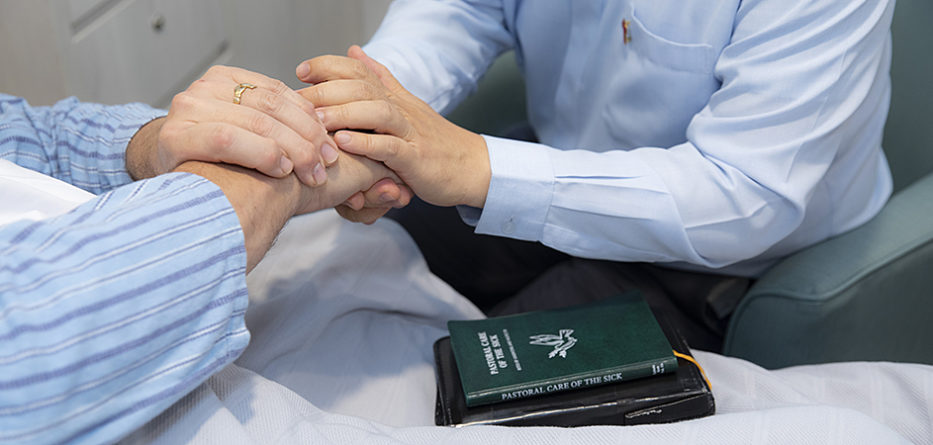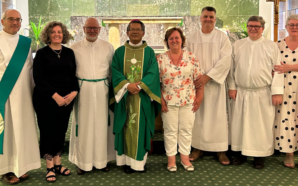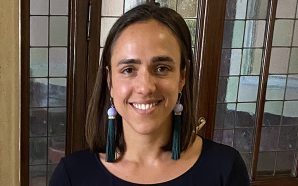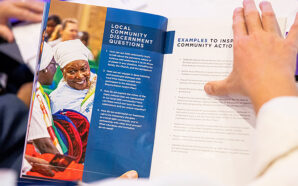Reimagining loss and deep grief as a sickness of the soul and embracing the healing Sacrament of Anointing the Sick in all its potential
Each day since my priestly ordination, I have deepened my appreciation for the potency of the Sacrament of the Anointing of the Sick, one of our Church’s two sacraments of healing, the other being the Sacrament of Reconciliation/Penance/Confession.
In the past week I was called to the death bed of a long standing and beloved parishioner. Thankfully I was able to confer both healing sacraments upon Margaret, plus Viaticum, eucharistic food for the journey, and offer prayers for the dying.
I also anointed some of the family and offered them Holy Communion.
For over an hour, Margaret’s children, grandchildren, and in-laws observed their beloved prepare outstandingly for the next phase of her pilgrimage into God. What a gift we all received that night as we witnessed our parishioner’s faith, love and humour.
In recent weeks I have asked liturgists, theologians, fellow clergy, parishioners, and friends their opinion about whom they think the Sacrament of the Anointing of the Sick is intended.
I have long appreciated that it is not strictly a death bed sacrament; why, because we pray in confidence that the person receiving this sacrament will recover.
While never doubting God’s goodness, generally people in palliative care do not recover from an enhanced dose of pain-relieving morphine.
So, what is the ideal sacramental scenario for those near death and in time for us.
As happened last week: receiving absolution following confession, receiving holy communion, prayers for the dying (these really are the Last Rites, (now an outdated term), and, but not essentially, anointing with oil, as Jesus himself was anointed before his death and burial at Bethany (John 12:1–8).
Whom I have been anointing at death beds — herein lies the conundrum I invite muse about — is not simply one dying person, but the living.
That is, I have been anointing people suffering from grief and imminent loss of a loved one.
Sometimes this includes family members who are conflicted, feeling guilty and/or angry with other family members.
In other words, I envisage the sacrament as an anointing of people who are ‘sick‘, in body mind, spirit and/or soul.
When declaring this to others I have received a range of reactions, including one liturgical academic accusing me of ‘malpractice’, fellow clergy stating confidently that grief is not a sickness.
I have also received affirmation and high praise for my growing custom and practice. What, dear readers, do you think?
“Hi Fr John, I am a fellow priest from Down Under in the Diocese of Wollongong. I just read your essay in: Priestly Ministry and the People of God: Hopes and Horizons. I found it most encouraging and rooted in fine ecclesiology and sacramental theology.
“Recently, at a liturgy workshop related to funerals, I was smacked for ‘malpractice’ because I use the Sacrament of the Anointing of Sick with family mourners during funeral preparation…and on other occasions with people mentally tormented, etc. Their overwhelming positive response to this healing sacrament has deeply moved me.
“At the funeral workshop a professor in liturgy asserted that it’s only the physically sick for whom the Anointing of the Sick Sacrament is intended, not those emotionally, psychologically, or in some other way, sick. I’d be grateful for your response to this, and for a reference or two that might embrace a more flexible understanding of what sickness looks like for twenty-first century peoples. Can you also point out where physical sickness is delineated in sacramental documents?
“Whilst I anoint people on their death bed, my understanding is that the Sacrament of the Anointing Sick prays for restoration to health.
“It’s the Sacraments of Penance, Viaticum/Eucharist and Prayers for the Dying that are more appropriate for people in early or late palliative care condition and on their death beds. Your expert response in relation to sacramental theology and pastoral ministry would be very much appreciated.
“Thanks John and prayerful best wishes, Michael Dyer, Parish Priest, Milton NSW”.
* * * * *
“Dear Michael, thanks so much for your kind comments. I think there’s a divided opinion about anointing those in mental distress.
“The intro to the rite only says those seriously ill and those in danger of death. We normally extend that to anyone who’s going to have surgery with general anaesthesia as well as the elderly. Certainly, a case can be made for those who are very seriously mentally ill.
“My experience has been that when a parish has a communal anointing, and the sick are invited to come forward almost no one refrains.
“My opinion — I would devise a different kind of prayer for healing for the mourners. But your instinct is sound.
“Even if the church doesn’t extend the sacrament as such to a great variety of illnesses, and to those who mourn, we are in desperate need of liturgies for healing.
“The people show us that. I hope this helps. Blessings on your ministry and again thanks John.” – John F. Baldovin, S.J., PhD. Prof. of Historical & Liturgical Theology Boston College School of Theology and Ministry (printed with permission).
The definition of sickness has surely changed over time
What are a handful of our parishioners, that is our vernacular (everyday) theologians, given their quest for and conversation about God.
Try these comments for size.
- “What a graced reply. Beautiful to see a liturgist squirming and producing a pastoral answer. I reckon that pastoral guidance and advantage will usually win the day. What’s the worst that can happen – a slap from…? Just stand back for a second. look on.
What would the Trinity say about you anointing? I sometimes think of Fr Pat lending me a priest’s stole at Nowra for Maureen’s bro in law funeral — when he remarked he thought Jesus would be ok with it. NOT a licence to run ragged but pastoral common sense — like the prayers that ask for the near dead person to be restored to health!!! GO PLENARY and its concern with daily prayers and rubric! They talked about a Christ centred church.”
- “Dear Michael, it has always been my opinion that the sacrament of anointing of the sick is meant to apply to all types of sickness i.e., spiritual, mental, or physical. When approaching the sacrament, I believe that I will be healed of everything that stops me from being whole and consequently grow into the person God has created me to be. So, it’s a general approach that I take towards the Sacrament. More later!”
- “Michael, I think at our age we need the anointing of the sick. So, I am all for it.”
- “Thank you, Michael. I echo the words of John Baldovin”
- “Dear Michael and friends, please continue your anointing of the sick as you have been in the past, don’t let the comments of some who appear not to understand the needs of both the physical and mentally unwell, change your thoughts. I feel it must be exhausting for you to pray so deeply for us as we receive this Sacrament, and we are very grateful. Words may need to be changed, but not the practice.”
- “Dear Michael, am wondering if, once again, the church is floundering in its analysis of what / where / how it should operate in these matters. Surely, it’s a very clear message; ‘healing of the sick indicates we live in hope of once again recovering our health from WHATEVER illness afflicts our body, be it mental / spiritual or physical!!
“There is, to me, VERY clear difference between Last Rites afforded the dying [although in my case I survived], Thank you for explaining to us all on numerous occasions the differences between the two sacraments of healing. Many of us have had, at some point in our lives, mental anguish Michael. may I state that arduous and all that some of my physical afflictions have been, they are many times easier to cope with than the former.
“Unless one has walked the walk of illness, they have ABSOLUTELY NO knowledge of the pain, no matter from whence it comes!! Just keep on doing, if able, that which you do so well: how dare any laity/clergy judge, who has a right to be anointed and who has not. Hoping this is helpful, Blessings, M”
- Dear Michael, I feel that the Sacrament of Anointing for mourners around their loved one would bring them a great feeling of peace. Numerous others have affirmed this practice, one parishioner concluding that, “I agree with all great positive comments. It’s a nonsense to say that healing is not vitally important for those in grief, those suffering mental illness, etc, Don’t stop!!
I am keen that I/we and theologians dialogue further with clinical psychologists, social scientists, and health/social workers about what constitutes sickness in our modern world.
The times changing and the definition of sickness has surely changed over millennia. And now for the pub test.
Not only did Jesus and his disciples heal the physically sick. He also cured people who were sick in soul and possessed by demons.
Might we reimagine loss and deep grief as a sickness of soul (e.g., processing the suicide of loved ones), and embrace the healing Sacrament of Anointing the Sick in all its potential.
Finally, let us recall that Jesus himself was anointed at Bethany, well before his death and burial and not, seemingly, because he was physically sick (c.f. John 12:1–8).
Michael Dyer is a presbyter of St Mary Star of the Sea Parish, Milton, in the Diocese of Wollongong.
Reproduced with permission from La Croix International.








